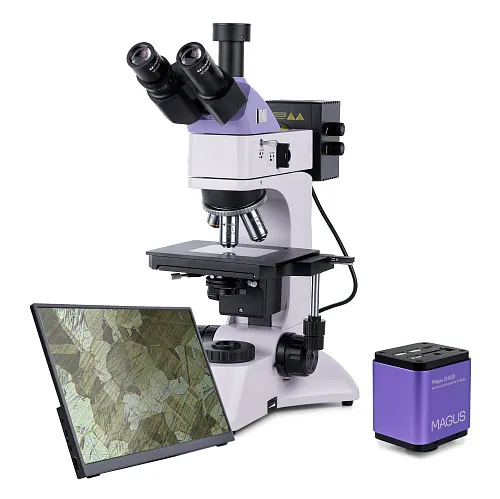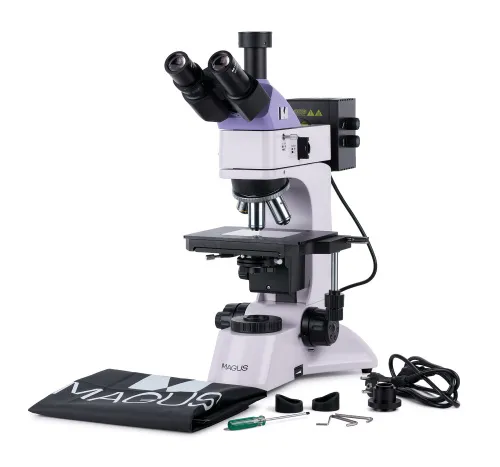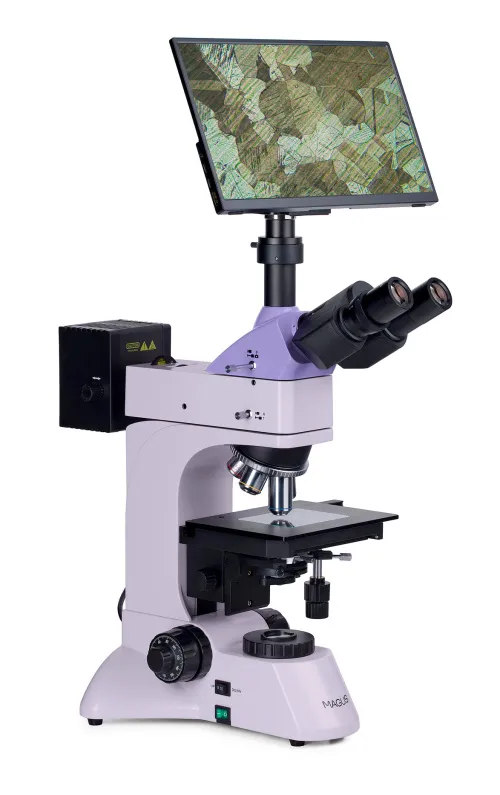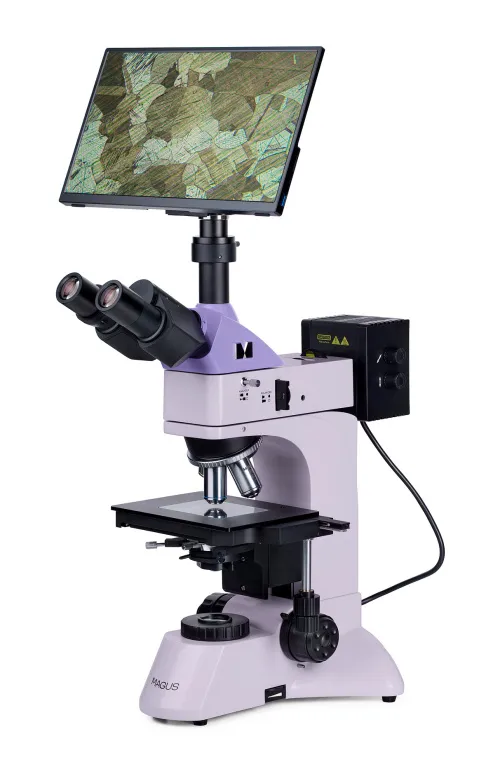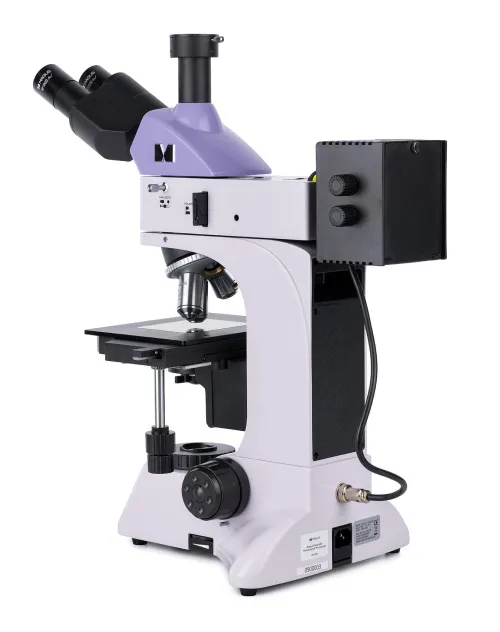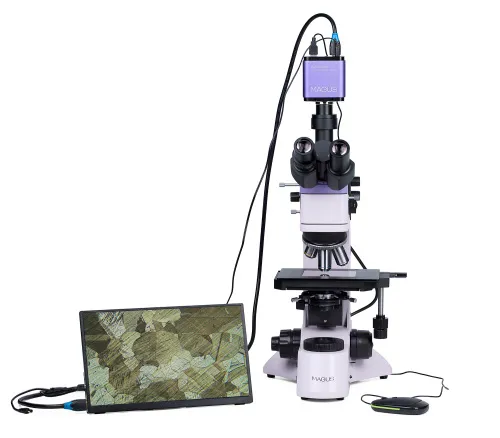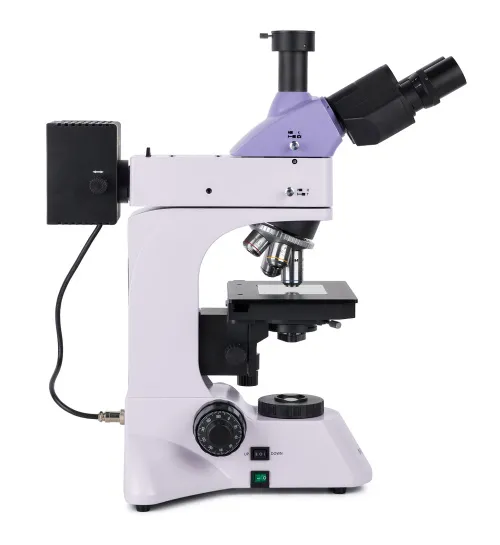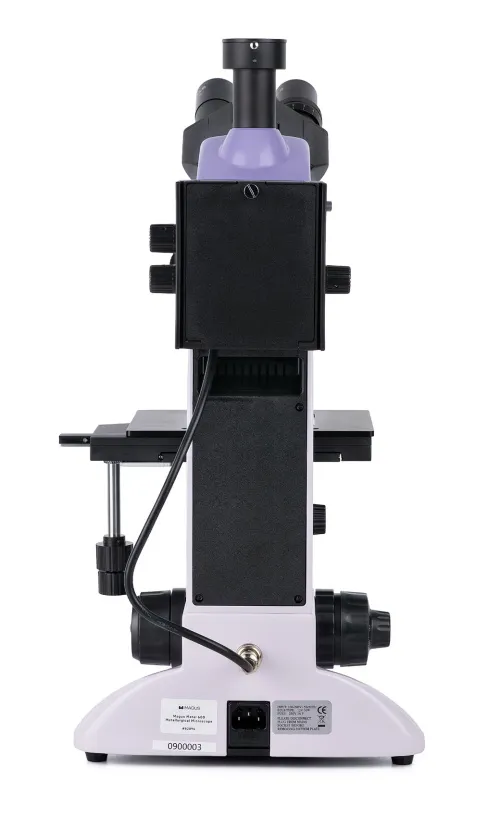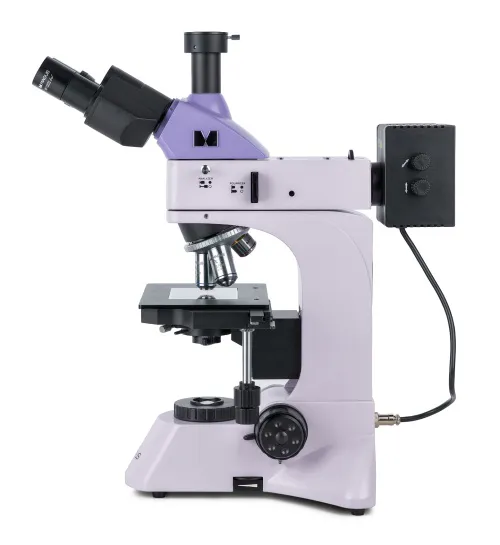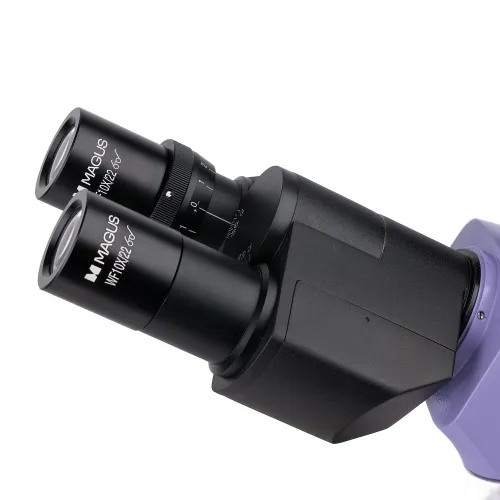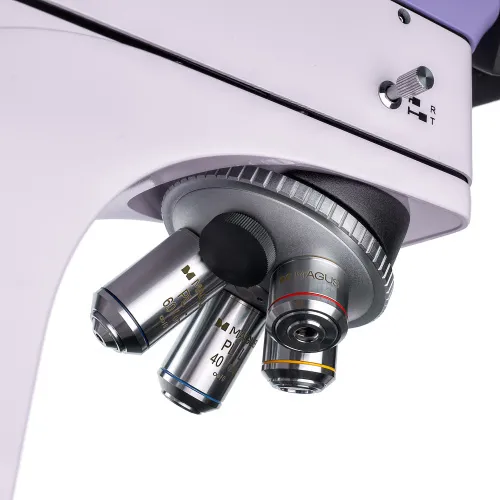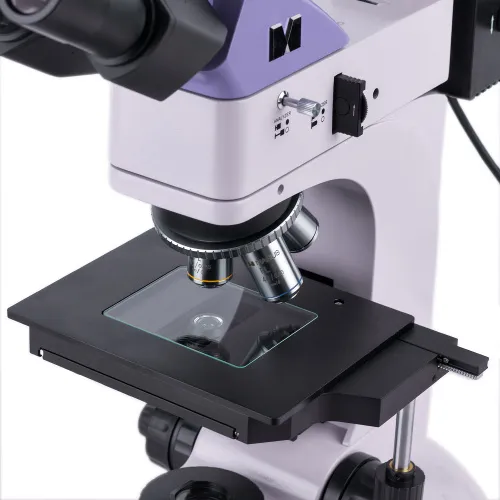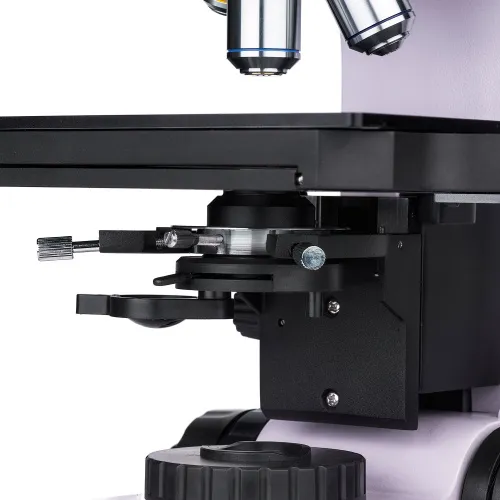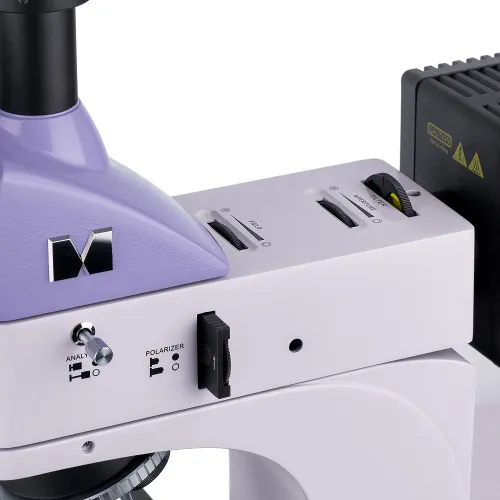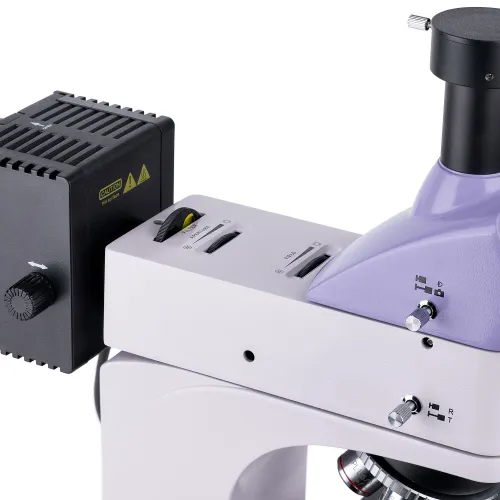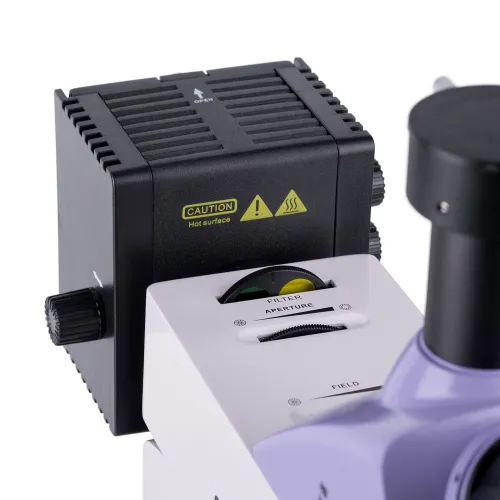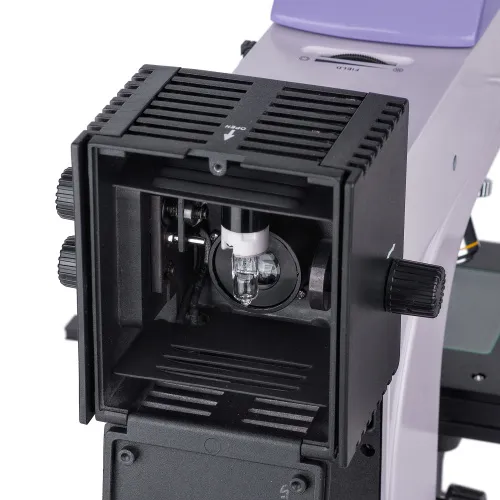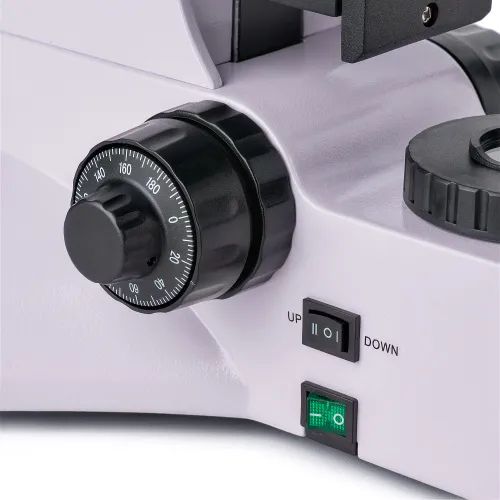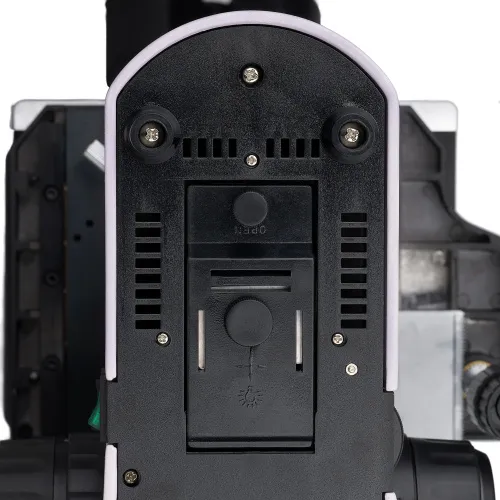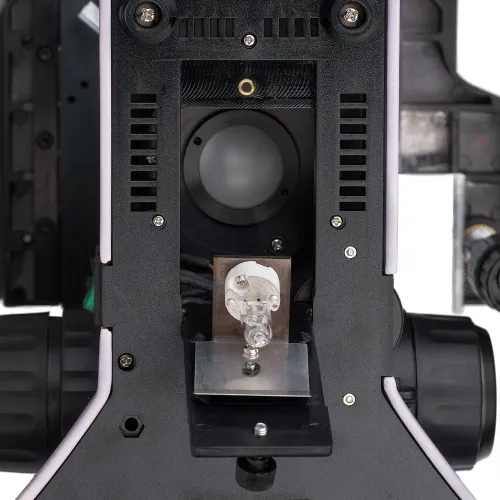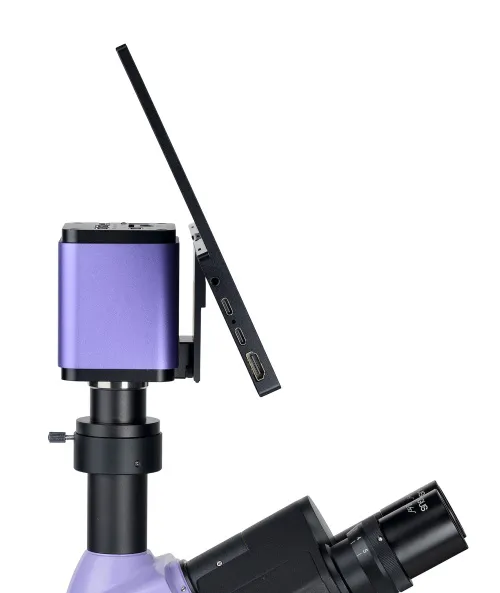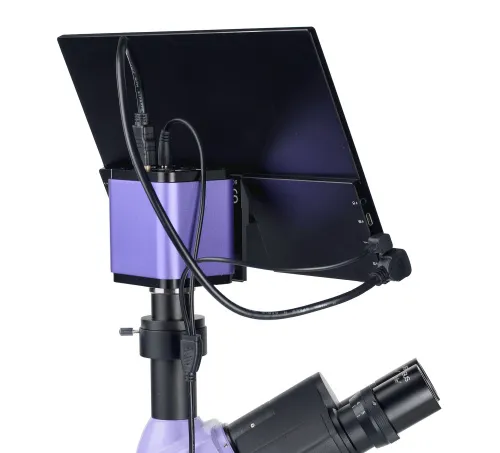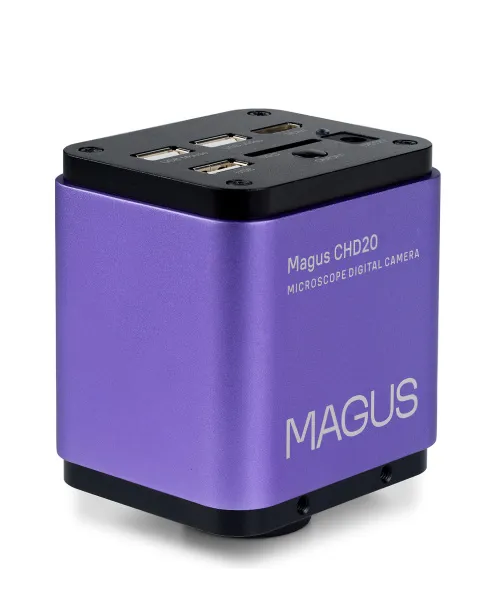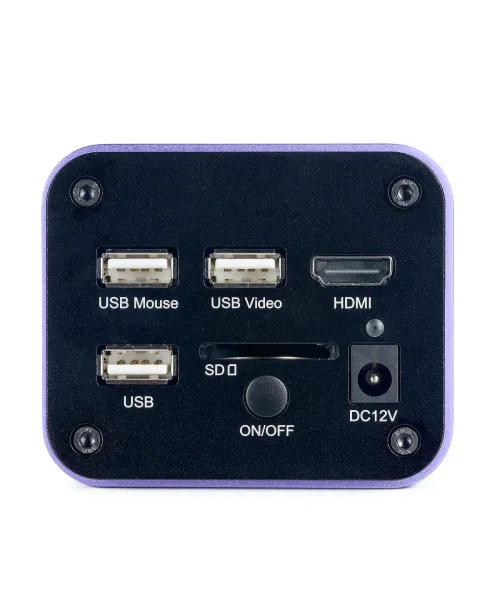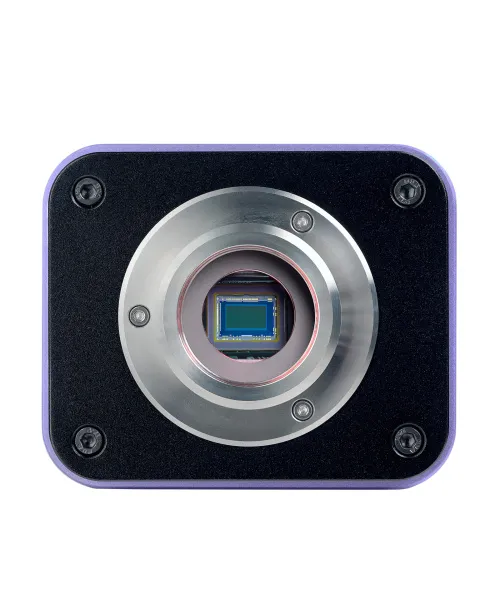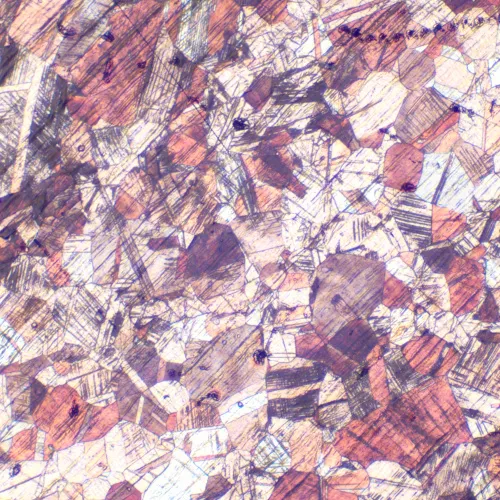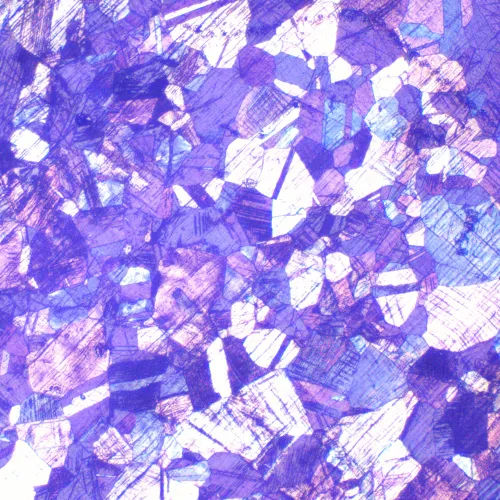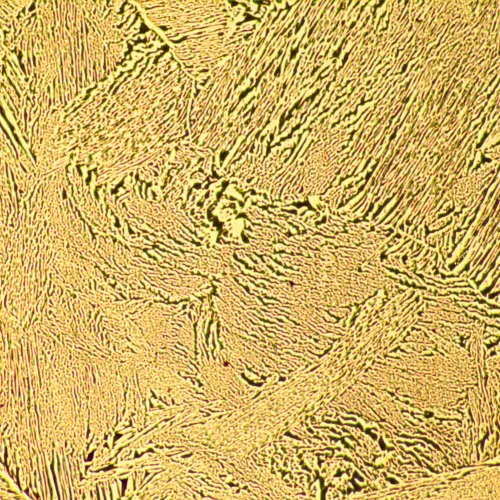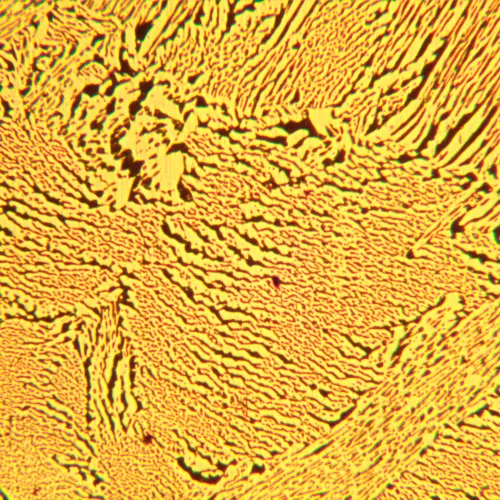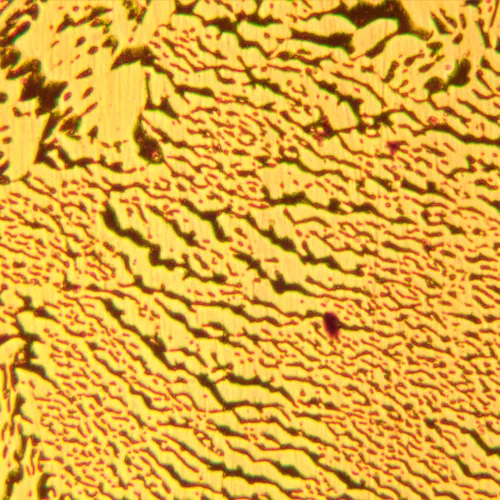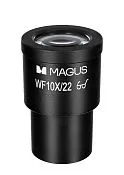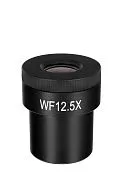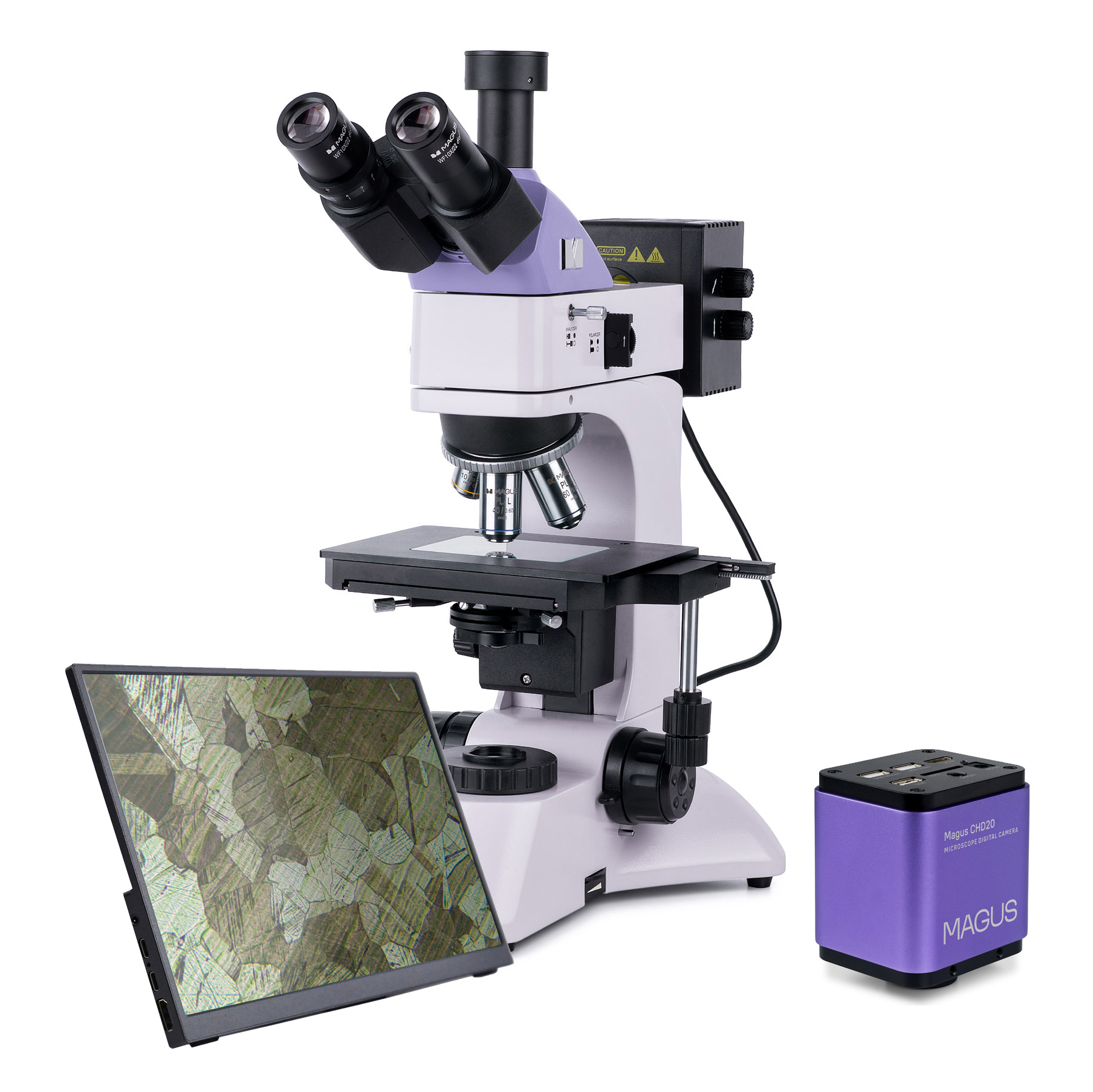MAGUS Metal D600 LCD Metallurgical Digital Microscope
With a camera and monitor. Magnification: 50–600х. Trinocular head, plan achromatic objectives, 30W halogen transmitted and reflected light illumination
| Product ID | 83025 |
| Brand | MAGUS |
| Warranty | 5 years |
| EAN | 5905555018287 |
| Package size (LxWxH) | 35x30x75 cm |
| Shipping Weight | 17.25 kg |
Metallurgical microscope MAGUS Metal D600 LCD is designed for studying opaque samples (metals, alloys, paint coatings, semiconductor and other materials) in reflected light using brightfield and polarization microscopy techniques. You can study the microstructures on flat and polished samples. The transmitted light illuminator also makes it possible to examine the particles trapped on filters and translucent materials (like thin films) under the microscope. The microscope is suitable for the research and analysis conducted by geologists, metallurgists, engineers, archaeologists, and specialists in other fields of science.
Digital camera
The MAGUS CHD20 Digital Camera is equipped with a 2MP sensor and produces realistic Full HD images at a resolution of 1920x1080px. The camera features high light sensitivity that is suitable for working in fluorescent light. Through the use of R, G, B primary color mosaic filters, low dark current and clear image are achieved. The camera uses an HDMI interface to connect directly to a TV, monitor, or projector. In this mode, the camera operates autonomously without a PC. The HDMI interface provides a high and stable transfer rate from the camera to the external screen. An additional USB2.0 interface is provided for connecting the camera to a PC. Video is recorded at 60fps or 50fps depending on the video output interface. The camera combines high FPS and high bandwidth HDMI and, therefore, videos are vivid with no freezes or gaps between frames. At maximum resolution, the image is well-detailed, moving objects are visible without bugs, and object movement is displayed without delays.
Monitor
MAGUS MCD monitors work in combination with MAGUS CHD cameras to form a complete imaging system for MAGUS microscopes.
The connection to the camera occurs via its HDMI interface. The monitor displays real-time images. Its IPS LCD display has a wide viewing angle, high brightness, and good contrast. When looking at the screen even from a large angle, the image is not distorted. The screen size is 13.3''.
The monitor can be installed on a horizontal surface using a folding stand or mounted directly on a camera or tripod.
Optics
The trinocular head is equipped with a trinocular tube for camera mounting (not included). The light beam can be split in two positions: 100:0 or 0:100, which means you can direct the light beam to either the digital camera or the eyepiece tube. The trinocular head is 30° inclined, which is convenient for long observations. There is a diopter adjustment ring on the left tube.
In the basic configuration, the microscope magnification ranges from 50x to 600x. In order to increase the upper magnification limit, you can mount additional eyepieces. The revolving nosepiece with objectives is oriented toward the interior. Five objectives can be mounted at the same time – four of them are included in the kit and one slot is free for installing an additional one. The microscope uses plan achromatic objectives with a long working distance suitable for brightfield microscopy.
Illumination
The microscope is equipped with transmitted and reflected light illumination systems. Both use 30W brightness-adjustable halogen bulbs powered by an AC power supply. Halogen bulbs emit light with a color temperature that allows for comfortable work.
The microscope is equipped with polarization devices for reflected light observations: built-in analyzer and removable polarizer. The aperture and field diaphragms make it possible to set up the Köhler illumination, and there are also color filters included in the kit. The apertures and the reflected light source can be centered.
The transmitted light illumination system uses a traditional Abbe condenser, the position of which can be adjusted in two ways: centered and adjusted in height. It is complemented by a flip-up lens for use with low magnification objectives. There are aperture and field diaphragms, i.e., you can use the Köhler illumination method.
Stage and focusing mechanism
The maximum height of the specimen that can be put on the stage is 20mm. The specimen is moved by moving the stage along the two axes. It is complemented by a glass plate that is used for working with opaque specimens.
Coarse and fine focusing mechanisms are used for focus adjustment. Focusing is smooth and precise. The coarse focusing has a lock knob and tension adjustment. The focusing knobs are coaxially positioned on both sides so that you do not have to hold your hands in the air while working; instead, you can place them on the table.
Accessories
The MAGUS Metal D600 LCD microscope can be further equipped with additional eyepieces, long working distance objectives, digital cameras, and calibration slides.
Key features of the microscope:
- Microscope for studying opaque flat and polished samples in reflected light and translucent samples in transmitted light
- Trinocular head with a trinocular tube and a beam splitter
- Transmitted and reflected light source: 30W halogen bulb
- Köhler illumination method in transmitted and reflected light, polarization microscopy technique in reflected light
- Elements (diaphragms and light sources) of the reflected light illumination system that can be centered, set of filters
- Abbe condenser with flip-up lens that is used with low magnification objectives
- Wide range of additional objectives and eyepieces
Key features of the camera:
- The camera operates autonomously without a connection to a PC via HDMI interface. Can be connected to a PC via USB2.0 interface
- The camera resolution is 1920x1080px – an ideal choice for displaying images on a Full HD monitor
- 60fps or 50fps depending on the video output interface for observing moving objects, recording video, and moving the preparation without jerkiness or lags
- SONY Starvis color CMOS backlit sensor provides low noise level and high light sensitivity even in low-light conditions. You will get clearer, brighter, and more color-saturated images.
- Software with photo, video recording, editing, external display functions, linear and angular measurements
The kit includes:
- MAGUS CHD20 Digital Camera (digital camera, HDMI cable (1.5m), USB 2.0 cable (2m), USB mouse, 32GB SD memory card, AC power adapter 12V/1A (Euro), installation CD with drivers and software, user manual and warranty card)
- MAGUS MCD20 LCD Monitor
- Base with a power input, transmitted light source and condenser, focusing mechanism, stage and revolving nosepiece
- Reflected light illuminator with a lamphouse
- Trinocular head
- Infinity plan achromatic objective: PL L5x/0.12 WD 26.1mm
- Infinity plan achromatic objective: PL L10х/0.25 WD 20.2mm
- Infinity plan achromatic objective: PL L40х/0.60 WD: 3.98mm
- Infinity plan achromatic objective: PL L60x/0.70 WD: 2.08mm
- Eyepiece 10x/22mm with long eye relief (2 pcs.)
- Glass stage plate
- C-mount adapter 1x
- Hex key wrench
- AC power cord
- Reflected light illuminator power cord
- Dust cover
- User manual and warranty card
Available on request:
- 10x/22mm eyepiece with a scale
- 12.5x/14mm eyepiece (2 pcs.)
- 15x/15mm eyepiece (2 pcs.)
- 20x/12mm eyepiece (2 pcs.)
- 25x/9mm eyepiece (2 pcs.)
- Infinity plan achromatic objective: PL L20х/0.40 WD 8.80mm
- Infinity plan achromatic objective: PL L50х/0.70 WD 3.68mm
- Infinity plan achromatic objective: PL L80x/0.80 WD: 1.25mm
- Infinity plan achromatic objective: PL L100x/0.85 (dry) WD 0.40mm
- Calibration slide
| Product ID | 83025 |
| Brand | MAGUS |
| Warranty | 5 years |
| EAN | 5905555018287 |
| Package size (LxWxH) | 35x30x75 cm |
| Shipping Weight | 17.25 kg |
| Monitor specifications | |
| Type | light/optical, digital, metallurgical |
| Microscope head type | trinocular, digital screen/PC monitor |
| Head | Siedentopf |
| Head inclination angle | 30 ° |
| Magnification, x | 50 — 600 |
| Magnification, x (optional) | 50–1000/1250/1500/2000/2500 |
| Eyepiece tube diameter, mm | 30 |
| Eyepieces | 10х/22mm, eye relief: 10mm (*optional: 10x/22mm with scale, 12.5x/14; 15x/15; 20x/12; 25x/9) |
| Objectives | infinity plan achromatic: PL L5x/0.12, PL L10x/0.25, PL L40x/0.60, PL L60x/0.70; parfocal distance 45mm (*optional: PL L20x/0.40, PL L50x/0.70, PL L80x/0.80, PL L100x/0.85 (dry)) |
| Revolving nosepiece | for 5 objectives |
| Working distance, mm | 26.1 (5x); 20.2 (10x); 3.98 (40x); 2.08 (60x); 8.80 (20x); 3.68 (50x); 1.25 (80x); 0.40 (100x) |
| Interpupillary distance, mm | 48 — 75 |
| Stage, mm | 210x140 |
| Stage moving range, mm | 75/50 |
| Stage features | two-axis mechanical stage, with a glass plate |
| Eyepiece diopter adjustment, diopters | ±5 (on the left tube) |
| Condenser | transmitted light: center-adjustable and height-adjustable Abbe condenser, NA 1.25, adjustable aperture diaphragm and flip-down lens, with locking screws |
| Focus | coaxial, coarse focusing (25mm, with a lock knob and tension adjusting knob) and fine focusing (0.002mm) |
| Body | CNC aluminum alloy |
| Illumination | halogen |
| Brightness adjustment | ✓ |
| Power supply | 220±22V, 50Hz, AC 110–220V, DC 5–12V/1A (Type-C), AC network |
| Light source type | reflected and transmitted light: 12V/30W |
| Light filters | green, blue, yellow, matt |
| Operating temperature range, °C | -15...+55 |
| Operating temperature range, °C | 5...+35 |
| Additional | built-in analyzer and removable polarizer |
| Ability to connect additional equipment | USB mouse, flash stick (USB) |
| User level | experienced users, professionals |
| Assembly and installation difficulty level | complicated |
| Application | metallurgical |
| Illumination location | dual |
| Research method | bright field, polarization |
| Pouch/case/bag in set | dust cover |
| Weight, kg | 11 |
| Sensor | Sony Exmor/Starvis CMOS |
| Color/monochrome | color |
| Megapixels | 2 |
| Maximum resolution, pix | 1920x1080 |
| Sensor size | 1/2" (7.2x4.05mm) |
| Pixel size, μm | 3.75x3.75 |
| Interface connectors | HDMI 1.4, USB 2.0 |
| Memory card | SD up to 32GB |
| Light sensitivity | 1175mV with 1/30s |
| Signal/noise ratio | 0.15mV at 1/30s |
| Exposure time | 0.04ms–1000ms |
| Video recording | ✓ |
| Frame rate, fps at resolution | 50@1920x1080 (USB), 60@1920x1080 (HDMI) |
| Place of installation | trinocular tube, eyepiece tube instead of an eyepiece |
| Image format | *.jpg, *.tif |
| Video format | *.h264/*.h265, *.mp4 |
| Spectral range, nm | 380–650 (built-in IR filter) |
| Shutter type | ERS (electronic rolling shutter) |
| Software | HDMI: built-in; USB: MAGUS View |
| System requirements | Windows 8/10/11 (32bit and 64bit), Mac OS X, Linux, up to 2.8GHz Intel Core 2 or higher, minimum 4GB RAM, USB2.0 port, RJ45, 19" or larger display |
| Mount type | C-mount |
| Camera power supply | DC adapter 12V, 1A |
| Camera operating temperature range, °С | -10...+50 |
| Operating humidity range, % | 10 — 90 |
| Operating humidity range, % | 30 — 80 |
| Type of matrix | IPS |
| Display diagonal, inch | 13.3 |
| Display resolution, px | 1920x1080 (Full HD) |
| Aspect ratio | 16:9 |
| Brightness, cd/m² | 400 |
| Number of displayed colors | 16.7 m |
| Contrast | 1000:1 |
| Horizontal/vertical viewing angle, ° | 178/178 |
| Size of the visible screen area (WxH), mm | 295x165 |
| Pixel pitch (WxH), mm | 0.154x0.154 |
| Frequency of optical source, Hz | 60 |
| Type of matrix backlight | LED |
| LED backlight lifetime, h | 50000 |
| Interface | HDMI |
| Power consumption, W | 12 (max.) |
and downloads
We have gathered answers to the most frequently asked questions to help you sort things out
Find out why studying eyes under a microscope is entertaining; how insects’ and arachnids’ eyes differ and what the best way is to observe such an interesting specimen
Read this review to learn how to observe human hair, what different hair looks like under a microscope and what magnification is required for observations
Learn what a numerical aperture is and how to choose a suitable objective lens for your microscope here
Learn what a spider looks like under microscope, when the best time is to take photos of it, how to study it properly at magnification and more interesting facts about observing insects and arachnids
This review for beginner explorers of the micro world introduces you to the optical, illuminating and mechanical parts of a microscope and their functions
Short article about Paramecium caudatum - a microorganism that is interesting to observe through any microscope

